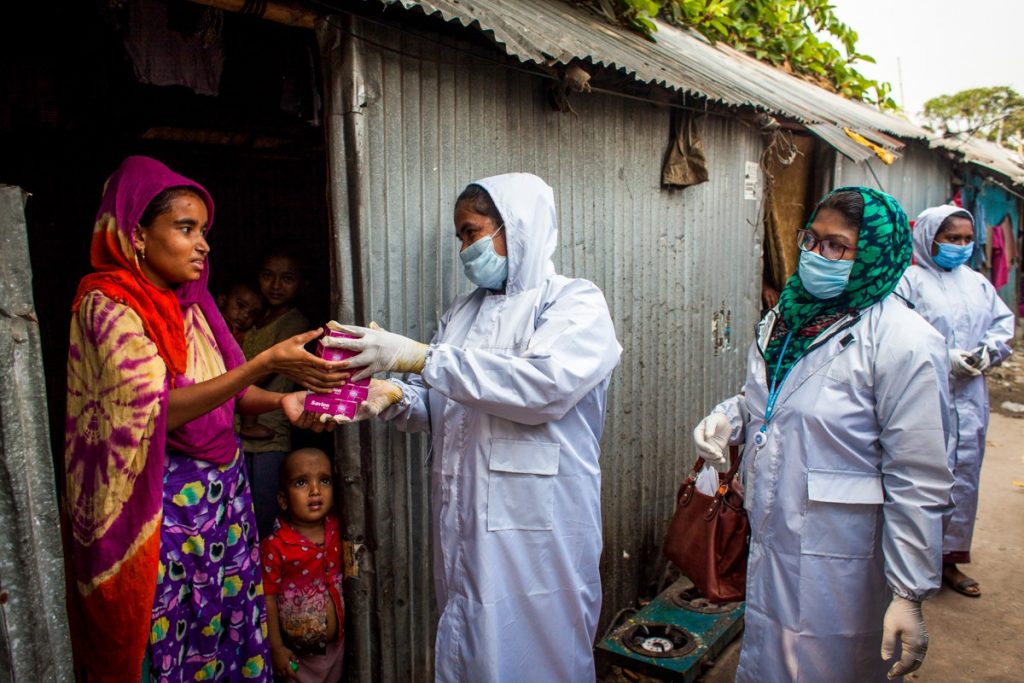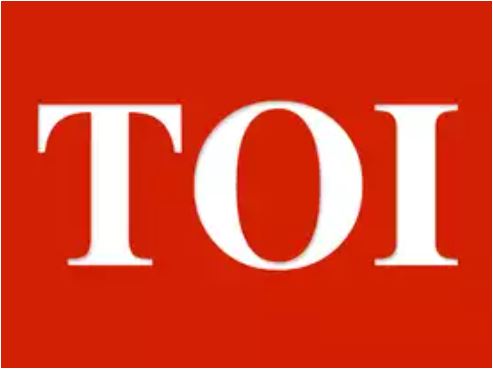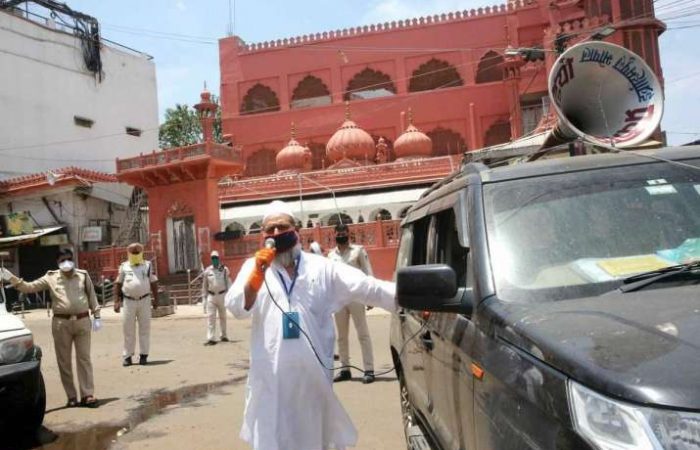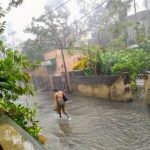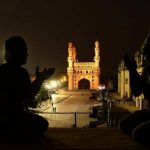Zakat provides for cash transfers which are important in supporting the vulnerable in the short term and can contribute to COVID-19 emergency response. Pictured: Soap and hand sanitizer are distributed as part of UNDP’s emergency support of vulnerable families in Bangladesh. Photo: UNDP Bangladesh/Fahad Kaizer
As the global development community responds to the COVID-19 pandemic, a diverse and inclusive set of stakeholders must be engaged to address the enormous challenge. While the crisis has created immense human suffering, it has also sparked worldwide action from institutions and people eager to help.
The UN Secretary-General’s Call for Solidarity, on March 19th, outlines three components; tackling the health emergency; focusing on social impact in the response and recovery; and helping countries recover more sustainably for the long term.
UNDP’s Integrated Response to COVID-19 offers support and guidance to counties to prepare, respond, and recover. The immediate priorities identified in the response include health systems support, inclusive and integrated crisis management and response, and social and economic impact needs assessment and response.
Islamic finance can be part of the COVID-19 response through a range of financing instruments well-suited for each stage.
Emergency support in the short term
Zakat can be an important component of national and NGO emergency support programmes. Donors typically require that Zakat be disbursed within one year of being given. This focus on immediate benefit is well suited for crisis response. Zakat donors support both the poor and the economically insecure, an area of increased need in the pandemic. Zakat donors often give cash transfers, which can be especially important in emergencies.
Individual philanthropy is a broad tool that can be used to support health care, food and other immediate needs. Corporate philanthropy can be a way for businesses to contribute not only money but also goods and expertise.
UNDP’s partnership BAZNAS, Indonesia’s national Zakat collection agency, has been in place since 2017. This collaboration is an example of how Zakat stakeholders can systematically link their projects with the Sustainable Development Goals, including in response to crises. UNDP’s partnership with the World Zakat Forum launched in 2019, lays the groundwork for members to work with UNDP on SDG alignment worldwide.
UNDP’s recently-announced partnership with the Dubai Islamic Economy Development Center is a reflection of how UNDP can support private-sector companies on social impact. UNDP has tools and frameworks by which firms can align their business activities and corporate giving with specific SDGs.
Response and recovery in the medium term
The financing of equipment, vehicles, and other sources of livelihood and trade finance are key mechanisms by which Islamic banks and financial institutions can support recovery. Aligning their financing activities with the SDGs is a significant opportunity for Islamic banks. In 2018, the Al Baraka Banking Group launched a collaboration with UNDP that seeks to align over US$600 million of its financing portfolio with the SDGs in the Middle East, Asia, Africa, and Europe. The coronavirus pandemic makes such initiatives all the more urgent.
Impact investing – private investment prioritizing businesses with social impact – can play a central role in the recovery. UNDP’s Global Islamic Finance and Impact Investing Platform, launched in 2015 in partnership with the Islamic Development Bank Group, brings global impact investing expertise to Islamic finance.
Long-term recovery and resilience
SDG-aligned sukuk (bond equivalents) can be an important source of long-term capital for governments and companies engaged in the COVID response and recovery. UNDP’s support of the Government of Indonesia’s Green Sukuk, including a US$1.25 billion issuance in 2018, is a prime example of how issuers can partner with UNDP to identity, track, and report on their SDG impact. They provide a decade of funding for Indonesia’s National SDG Plan.
UNDP has, through its Green Sukuk Initiative, held workshops and other outreach with partners in Malaysia, Pakistan, and beyond. As the pandemic has made long-term funding for development all the more crucial, UNDP stands ready to help.
Waqf endowments can, in many contexts, be important contributors to long-term resilience. Financial or non-financial assets such as land or buildings are permanently dedicated to social purposes. This can be an important way for stakeholders to contribute to social infrastructure that serves the SDGs and, in the words of the UN Secretary-General, help countries “recover better” over the long term.
This is a time for new ways to help tackle the devastation of COVID-19 and invest in sustainable development. Islamic finance has the tools for each stage of the response. UNDP stands ready to help countries and communities unlock these vital partnerships and instruments to respond to the pandemic
Curtsy: www.undp.org, by Aamir A Rehman

